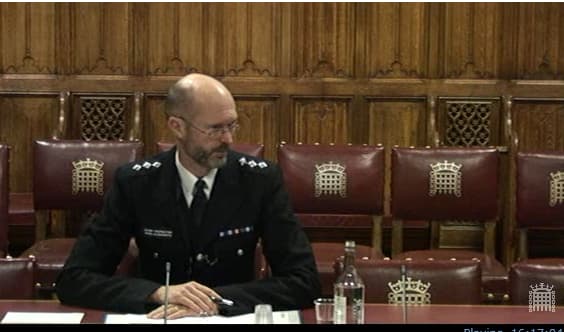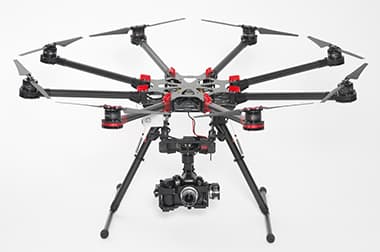Chief Inspector Nick Aldworth, of the Metropolitan Police, this week told a House of Lords committee looking into civilian drone use that, in the absence of privacy legislation in the UK, users could fall foul of the 2003 Sexual Offences Act among other, existing, laws.
‘The concerns are really around the fact we are seeing this technology being used for criminal conduct, undoubtedly,’ Aldworth said.
‘Our concern is, when you look at these devices and how available they are becoming, and their price coming down, and we are approaching Christmas, are we likely to see greater use of this technology moving into next year and the year beyond? I suspect, very probably, yes.’

Aldworth warned that drone technology has opened up opportunities for ‘negligent, reckless, or malicious’ use – citing examples of incidents published on the internet, after they have occurred – leaving police ‘very little opportunity to subsequently investigate’.
He added: ‘We sense this technology creates opportunities that will engage with other legislation that people would probably consider to be protecting their privacy, and the most obvious to date would be the 2003 Sexual Offences Act, and the specific offence of voyeurism.
‘Is it conceivable that we will have these things, particularly the ones with cameras, hovering outside people’s bedrooms, for whatever nefarious reason?’
Aldworth also cited the offence of ‘harrassment’, under the Public Order Act, as among offences police may consider enforcing.
‘Like so many things historically, in policy we tend to try to shoehorn legislation to fit emerging challenges,’ he said.
Aldworth is part of a working group that hopes to roll out guidance and policy to police forces nationwide.
He voiced concerns, however, as to how current laws would be implemented, in practice, in relation to drones.
‘If it whizzes past your window and catches something you’d rather it didn’t catch, unless we can get there, there and then, and identify the pilot or the person flying the machine, subsequent intervention becomes far more challenging than it would be otherwise…’
Aldworth added that flying a drone over a football ground would contravene air navigation laws, creating a safety risk if the device falls from the sky through a power failure, for instance.
Police also fear drones will soon be used as part of protests in the UK.
Aldworth is part of a group looking at how to best work with the Civil Aviation Authority and other bodies to apply existing laws ‘to best effect’.
At the outset, Aldworth told the House of Lords committee that he was not allowed to discuss ‘security’ or ‘police use’ of drone technology.
Yesterday, the BBC reported that an estate agent in Australia had used pictures of a topless sunbather captured by a drone, ‘without realising they included revealing images of a neighbour’.
This week’s issue of Amateur Photographer (dated 22 November) includes a feature on drone use.
DRONES AND PHOTOGRAPHY – UK RULES
To watch a video of the House of Lords committee hearing, in full, click HERE.








